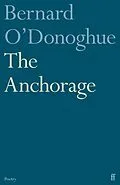Poetry of how we shape what is lost or past, and how it shapes us. Bernard O'Donoghue investigates anchorage as a place we build for ourselves out of memory and story. The Ireland of his youth is rich in colour and precise in detail, and while he acknowledges the power of the past, he also brings it into question: 'I wish I'd never started on this story; / It may have been a dream, or maybe not . . .' O'Donoghue's informal and at times playful tone is that of a poet disarming themselves as well as their reader. Here are the paradoxes at the heart of human nature: what we are most attached to can be, in the end, what ties us down; the reluctance to return can arise out of the fear of finding ourselves locked out. 'O'Donoghue's poems are an object lesson in how to write poetry that matters.' PN Review 'The poignancy of O'Donoghue's migratory imagination is . . . the perfect travelling companion.' Times Literary Supplement 'Compelling and simple diction . . . full of gentle, sometimes undetectable flashes of humour.' London Magazine 'As with everything O'Donoghue writes, the more you look, the more you see.' Scotsman
Autorentext
Bernard O'Donoghue was born in Cullen, Co. Cork, in 1945. His poetry collections include Gunpowder, winner of the 1995 Whitbread Prize for Poetry, and The Seasons of Cullen Church, shortlisted for the 2016 T. S. Eliot Prize. His Selected Poems was published by Faber in 2008. He is currently translating Piers Plowman for Faber.
